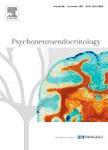版权所有:内蒙古大学图书馆 技术提供:维普资讯• 智图
内蒙古自治区呼和浩特市赛罕区大学西街235号 邮编: 010021

作者机构:Beijing Normal Univ State Key Lab Cognit Neurosci & Learning 19 Xinjiekouwai St Beijing 100875 Peoples R China Beijing Normal Univ IDG McGovern Inst Brain Res Beijing 100875 Peoples R China Beijing Normal Univ Ctr Collaborat & Innovat Brain & Learning Sci Beijing 100875 Peoples R China Beijing Normal Univ Beijing Key Lab Safe AI & Superalignment Beijing 100875 Peoples R China Beijing Forestry Univ Sch Humanities & Social Sci Dept Psychol Beijing 100083 Peoples R China
出 版 物:《PSYCHONEUROENDOCRINOLOGY》 (Psychoneuroendocrinology)
年 卷 期:2025年第178卷
页 面:107483-107483页
核心收录:
学科分类:0710[理学-生物学] 1002[医学-临床医学] 1001[医学-基础医学(可授医学、理学学位)] 07[理学] 071003[理学-生理学]
基 金:Scientific and Technological Innovation (STI) 2030-Major Projects [2021ZD0200500] National Natural Science Foundation of China [32441109, 32271092, 32130045] Beijing Major Science and Technology Project [Z241100001324005] Opening Project of the State Key Labora-tory of General Artificial Intelligence [SKLAGI20240P06]
主 题:Trust Testosterone Cortisol Impulsivity Theory of mind
摘 要:During early adolescence, individuals undergo significant changes in neuroendocrine systems, neurodevelopment, and social sensitivity. Placing trust in the appropriate person becomes especially crucial for adolescents, given their increased peer interaction and heightened susceptibility to peer influence during this period. Adolescents take social distance into account when making trust decisions. However, the biological and cognitive mechanisms involved in trust decision-making towards peers of different social distances remain unclear. The present study investigated the interactions among hormonal (basal cortisol and basal testosterone), cognitive (impulsivity and theory of mind), and contextual (friends and strange peers) factors underlying trust decision-making in a sample of 142 adolescents (45 % females, Mage = 12.32 years, SDage = 0.60). Using a balloon analog risk task, a cartoon story reasoning task, and a modified version of the trust game, we assessed adolescents impulsivity, theory of mind, as well as trust investment and evaluation of return possibility towards their friends and strangers, separately. The results showed a unique hormonal-cognitive-contextual mechanism underlying trust investment, despite adolescents demonstrating a preference for trusting friends over strangers in both trust investment and trust evaluation. Cortisol predominantly influenced adolescents general trust, directly and indirectly through impulsivity. Testosterone appeared to modulate the indirect effect of cortisol via impulsivity on general trust and impacted their strategic trust decisions through the theory of mind. These findings highlight the role of cortisol and testosterone in trust and its potential cognitive process and provide guidance for tailored interventions for promoting healthy social development.